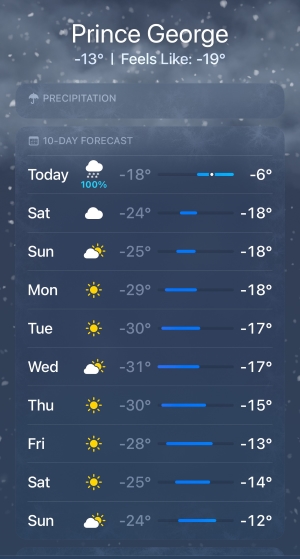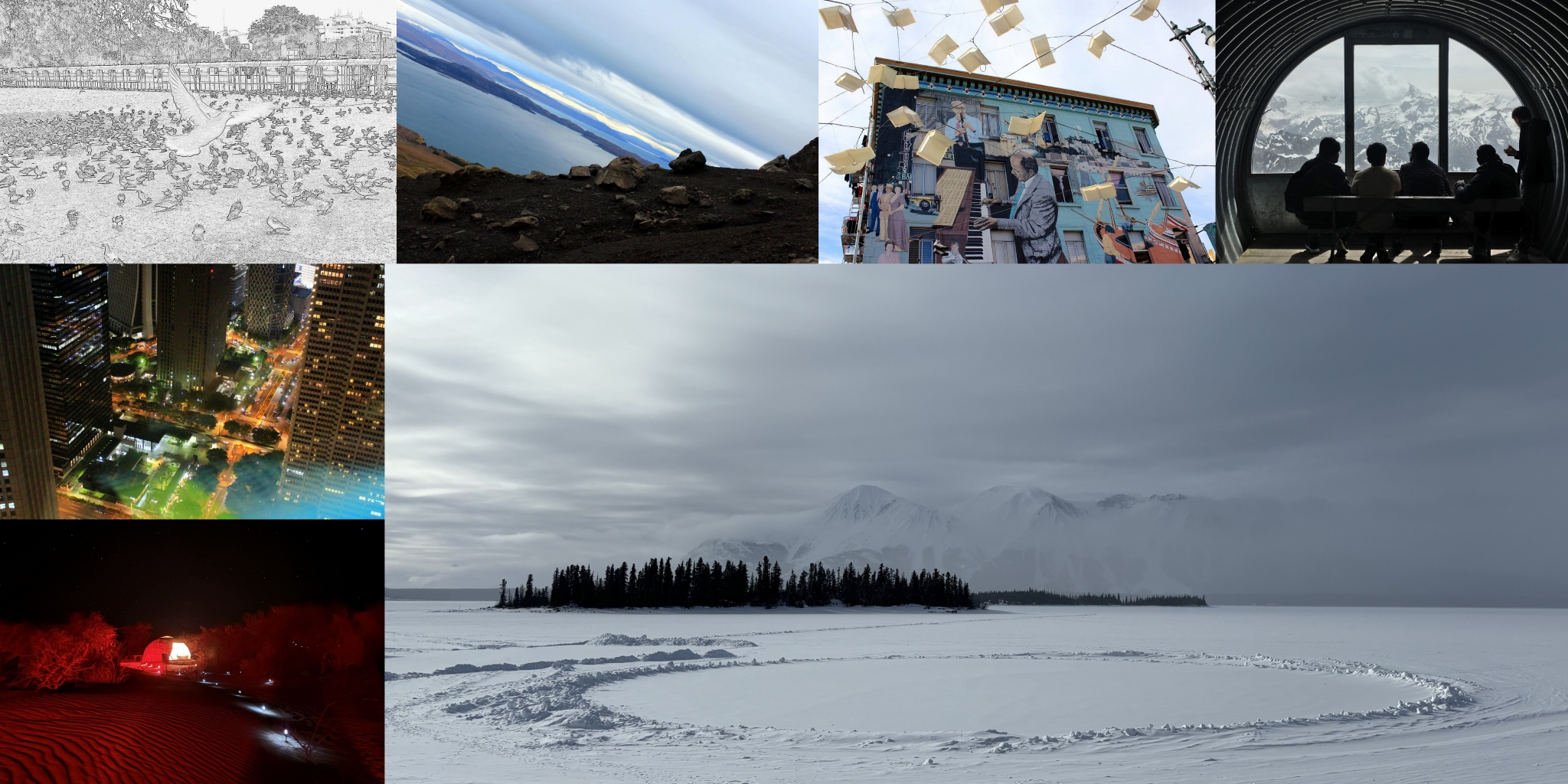-
Words for a Despondent Public
A quick update: ‘Weekly Picks’ posts will return to the blog this Sunday, February 9. I also plan to put together a bit of an explainer within the next couple of weeks on the method behind how I come across those articles/essays/videos. Stay tuned.
Plenty in the news that is levying anxiety on both sides of the 49th parallel these days. Those of us fortunate enough to be in the global minority enjoying stable democratic institutions can never really adopt a complacent approach.
Just a couple of videos for you today. Words of wisdom for troubled times.
Some takeaways:
(@3:00) Treat differences like a resource, not a problem.
(@11:15) Creative solutions are not lacking.
(@13:50) Democracy is something you do, not something that is.“Do not despair. The misery that is now upon us is but the passing of greed – the bitterness of men who fear the way of human progress. The hate of men will pass, and dictators die. […]
You, the people, have the power…the power to create happiness. You, the people, have the power to make this life free and beautiful.”
We dare not disengage.
-
End Credits

An impending cold spell has again prompted a return to this space. Helped by the foot of snow that has descended, slowing even the bravest as they slide their oversized vehicles to and from the offices they are forced to employ.
But my mind is at ease. Despite another busy day of commuting and typing, eyes jumping from monitor to monitor, a restless approach to a weekend waiting.
This is in part due to a soothing playlist. One that has disappeared the tinnitus and reminded me of a less hurried time. Where I would still consider going to a theater to watch a premiere, an exercise now so uninviting and diminished that I cannot foresee patronizing the silver screen anytime soon.
I was speaking with someone earlier this week about film endings. At first, we touched on how a significant fraction of modern audiences enthralled by blockbusters remain in their seats hoping to catch after-credits scenes. To glimpse an easter egg or snatch a preview of a sequel or spinoff. This trend no longer the arena of only superhero movies, but any studio-backed venture seeking to establish a franchise. A capitalist evolution of the type of quick, trivial, and non-consequential jokes that elevated the stature of comedies like Airplane! and Ferris Bueller’s Day Off.
The conversation soon moved to closing scores. Those that capped narratives with emotional weight, beautifully transitioning the captive witness back to reality. A final Pavlovian filament to the audiovisual yarn weaved, allowing viewers to exit dreams via a veil of scrolling text and imagery. If threaded well, forever tying fond memories to a moment when names of import flash across a frame.
And that is what I share with you today: a few favorites of mine. All related by one of the greatest trilogies every committed to film. After all, it is the overall quality of the picture that also determines how fondly one revisits those scores. I am partial to many excellent efforts somewhat hampered by their association with flawed products.
As a set, however, one would be hard-pressed to find anything in parallel with Howard Shore’s ending compositions for the Lord of the Rings trilogy. Independently towering and together a triumph.
Think back to those incredible instances.
-
Sugarcane
 A solar halo above Lower Post, BC. Home to the community of Daylu Dena Council, and the historical site of the Lower Post Residential School.
A solar halo above Lower Post, BC. Home to the community of Daylu Dena Council, and the historical site of the Lower Post Residential School.One evening during the Fall of 2017, a group of Red Cross staff, volunteers, and support personnel sat together in a large circle. They were debriefing, disclosing difficult reflections within an eerily empty reception center. The site of general chaos and noise only a few hours ago, the location – a quarter of a mall under renovation temporarily repurposed into a hall for evacuee support – held a taunting peace.
The group was not, however, discussing the fires. They were not talking about their empathy bandwidth (the constant strain of taking on the evacuees’ trauma), or the stress of managing the response, or even their fatigue after another long day with little rest. In fact, the workday had been a shorter one. It had ended early to allow everyone to participate in a mental health workshop. One after another, each person held a talking stick, answering open prompts on personal or professional pain points. In each other and through this exercise, they found some strength, validation, and motivation.
One individual told the story of how she had doubted herself constantly. How, despite her proven capability and resilience, she struggled with truly believing in herself. How she felt that everyone who held her up was doing twice the work. How she felt inadequate. A surprising revelation to most of us as she was our go-to for some of the toughest cases; a knowledgeable, calm presence who was able to make the appropriate connections and decisions without hesitation. Compassion personified.
The underlying reason for these undying feelings of insufficiency, she understood, were intergenerational trauma. She had barely escaped the residential school system in her youth. Her mother had already lost a child to the system when the RCMP knocked at her door for a second time. Mom hid her away and told the police there was no one to surrender. They searched the home, failed to find any minors, and left. As a result, she was able to grow up free from the traumas of residential schools, unlike her parents. Unfortunately, she continued to carry some of the insecurities and fears that her family held – about themselves, institutions, and their communities.
-
Degrees
The above video is from an official source. Here is an alternative with English subtitles.
Let me throw some numbers at you.
16 – The amount of unique academic disciplines I have studied. Most at an introductory level and a few in depth.
9 – Post-secondary institutions at which those courses were taken. 8 in Canada and 1 in the UK. 2 virtually and 7 in-person. 5 comprising my undergraduate experience. 1 for my post-graduate degree. 3 for general professional certifications.
7 – Languages that I have attempted to learn at one point or another. 1 in which I am comfortable.
0 – The temperature (in degrees Celsius) above which the weather has hovered for the past few days in Prince George. In January, at the height of winter. A signifier of a larger abnormality enveloping human existence.
20 – Days elapsed between the containment of the last major wildfire of California’s 2024 calendar (on December 18) and the first one that has begun its 2025 season (on January 7).
9 – Hours in the day that I am obligated to commit to non-personal endeavors. Labor, commuting, and the associated paraphernalia.
-
On 2024’s Palette

Something a little different to wrap up the orbit.
In Difference turns 1 next week. It was the first few days of January last year when I began setting up this space. Researching self-hosting options, reintroducing myself to the WordPress platform, adjusting code, and attempting to conjure inspiration. Funny what a temporary surplus of time and tranquility will manifest.
The aim was to add a habit of writing into the repertoire. The levels of originality or depth were always going to fluctuate, but I had hoped to establish a rhythm that could spur on other creative impulses.
At this juncture, I can admit to the patchy nature of the experiment. Work, travel, and other commitments have eaten into the hours budgeted towards introspection. Yet even the small amount of catharsis afforded by this exercise has been enough; there is plenty foundational to build on.
With that in mind, I was looking back through the year’s posts and noticed how often I shared images with little to no information. Though they were connected to the thoughts being relayed, it was not always clear how they informed the substance of the piece. The pictures, captured or constructed, felt ornamental. So, I thought I would take this opportunity to add a little more context to where they came from or why they were attached to the reflections.
A chance to resurface the musings with some additional insight. See the collection below; I hope it is somewhat illuminating.
-
Vancouver’s Veneer

A planet hurtles past a solstice towards perihelion, and Port City rejoices.
It is a place where skyscrapers sprout from mist. Garish projections fulfilling prophecies written into fiction decades past. Architecture akin to its siblings on similar coasts, in form not function, leering over paved grids. Scaffolding and circuitry facilitating stop-start processions of suits and skirts, vagabonds and ragamuffins, the listless and the determined. A concoction of noise, purpose, and energy.
The chilled holiday haze settles and departs hastily, sandwiching daily showers and windstorms. A humid, wintry alchemy that sustains a world of mirrors – darkened and drenched facades extending above soaked streets. The buildings floating on fog awash in dull greys punctuated by neon. The city’s translucent wrapping a liminal, reflective space dividing polluted skies above from frenzied avenues below.
It is an amalgam of engines, passages, and stages. Everyone descends upon its storied stations to perform or spectate. All roads, waterways, airways, and thought-streams lead to Port City, a frequented corner of an ever-rotating globe; an abstract geometry. Where people walk, drive, fly, train, and float around, taxied between physical, cultural, and economic portals. ‘Skipping town’ a regular and expected exercise, an offering on the cornucopic menu.
-
Another Brick in the Wall
The past few weeks have rendered me exhausted, leaving little room for creative pursuit or inspiration.
A professional transition without pause and its associated plunge into a novel vortex – new people, relationships, systems, and realities to grasp. Information collected and carried like water in cupped hands. Days in the calendar lost to unexpectedly tiring travel; the usually undemanding provincial highways home to a host of hazards. Weather-triggered malfunctions in my vehicle along with ensuing delays to repairs because of lengthy administrative processes. The lack of time, dear reader, the most egregious condition of all. The frozen darkness that has settled by 4pm an unwelcome cloak worn as errands are run.
Trivialities of existence, by themselves manageable. Accumulated, hitting critical mass abnormally quickly in this season of diminished daylight. Justifications, recorded and shared. A crutch relied on as I attempt to regain footing.
-
Relinquishing Control
Snow continues to fall over Northern BC. Over the past two days and two more to come, a foot of powder that is settling uncomfortably as the weather warms. A thick blanket that cannot be lifted but must be scattered or scraped. My sedan rests nearly invisible while the parking lot will not be cleared until mid-weekend.
Unfortunate, as I will need to be on the road soon, heading south before the mercury starts its dangerous dance between above- and sub-zero readings on the gauge. 800km to Vancouver, as I navigate the transition between my current profession to another on the horizon. A shift from Indigenous health to economic advocacy. (Hence the lack of updates recently – a lot on the mind and in the calendar.)
On a late Friday evening like this, I find myself craving spirits. A glass of red wine would be stellar; a small reprieve from a week that has demanded more mental energy than most. This is a strange thirst, given that I almost never consume alcohol. It is one of those pleasures reserved for dinners with friends or loved ones, once every few waxing crescents. I do not even have any in the apartment – nor have I ever kept this temptation at hand. Treated like so many other impulses by this minimalist: its grocery store isle granted a casual glance plus a shake of the head before being omitted from the circuit.
The thought of alcohol also summons forth the memory of the great piece shared above, from an artist imbibing as much creativity as anything else with each glass.
-
Imagine: Dragons
 Campfire embers inviting interpretation
Campfire embers inviting interpretationSparkling shards, brittle but imposing, adorn a town succumbing to darkness. A deep freeze has arrived in Prince George; the translucent icicles emanating white even as the night settles. The snow’s shimmer a mirror to the frost lining trees, structures, and vehicles dashing between.
I am glad during times like these that I can hunker down and have my imagination whisked to warmer locales. Today marks the start of a highly anticipated Test series between Australia and India. That is where my eyes will be for the next several days: Perth under a scorching sun, as cricketers wage war. Many modern icons among them, amidst swan songs and battling dragons. Media circuses, pitch demons, and the political context of a sport losing the plot. A place in the world championship on the line as legacies are writ atop a twenty-two-yard-long parchment.
Speaking of dragons, there is somewhere else my mind travels today. A fond memory, of a children’s story read in adulthood, stirring joy.
-
Desk Psychology
Sunday tends to be chore day. The cramming of so many errands into daylight hours, dwindling from the get-go as a countdown runs down to the week ahead. Cleaning, laundry, groceries, appointments, community events – some things pre-scheduled and some pushed out of necessity – to this, the end of the weekend.
Monday arrives, always too soon. Colleagues crack the same twelve jokes as everyone shares memes and gifs highlighting each aspect of a fresh work week. We search to caffeinate ourselves (our souls, more than anything) to address procrastinated to-dos that cannot be excused away without off-time looming.
Tuesday is probably the worst. Too close to the beginning of the week and too far from the end. Is that why so many drop-in leagues are scheduled for the evenings? Or why movie tickets are cheaper? Is anyone taking advantage of Taco Tuesday?
Wednesday is, anecdotally, interesting. Some consider it tough while others finally find their labor groove. A chance to gauge productivity for all with two days past and two days ahead; what has been accomplished and what remains to be done? Perhaps the longest day of the week for all those counting the hours.
Thursday feels better. The weekend nears. Laissez-faire inclinations have a habit of overtaking more motivated internal drivers.
Friday could be filled with anything – meetings, deadlines, last-minute requests – all are met with a strange optimism. Promise-ladened speech of things to look forward to ‘the coming week’ is the nitrous fuel that sees everyone through to the most anticipated End of Day. Labor done and dusted, perhaps a later night ahead.
Saturday is about as blissful as it gets. Anxieties around personal tasks can be forwarded another day. Personally valuable or amusing endeavors are undertaken. A weekly interruption in a work-dominated calendar.